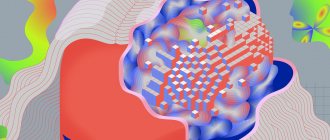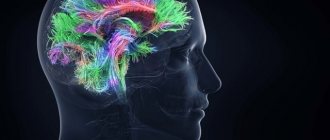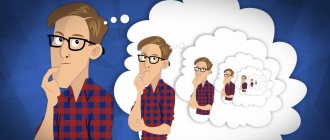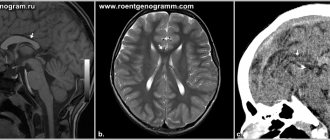Medical information is reliable Checked by Eremin Alexey Valentinovich
Affective disorders, even if they are episodic, greatly affect a person’s quality of life. A depressive episode is most often observed as part of the manifestation of bipolar disorder with a change in the emotional state of the patient. But it can also act as a separate disease. Expressed in the form of sadness, melancholy, and decreased interest in life. The pathology is often accompanied by somatic, cognitive and psychotic symptoms of varying severity.
Depression can occur in different ways, with a predominance of melancholy, apathy or anxiety. In some cases, agitation occurs against a background of low mood. Often such an episode, interspersed with a period of calm or pronounced activity, accompanies chemical dependence and can serve as the first sign of taking psychoactive substances.
Causes of a depressive episode
The main causes of a depressive episode are not fully understood. But there are many scientific hypotheses that explain the development of this affective disorder. The most likely ones are:
- genetic predisposition;
- features of neurochemical processes;
- features of upbringing;
- personal qualities;
- acute or chronic psychotrauma.
As many years of scientific research indicate, the share of internal factors (heredity) in the development of a depressive episode is about 75%. And the influence of the environment does not exceed 25%. Therefore, the likelihood of a deviation occurring against the background of the same stressful situation will be different for each person.
According to scientific data, predisposition to bipolar disorder and depression depends on the presence of a dominant gene that is linked to the X chromosome. Affective disorders also occur due to deficiency of the G6PD enzyme. The likelihood of developing the pathology in a child increases by 50%, even if only one of the parents is a carrier of the gene.
Mental characteristics strongly depend on the environment in which the child grows and develops. Most children raised by parents with mental disorders have a high risk of developing affective disorders. Alcohol or drug addiction in the mother and (or) father and a tendency to unpredictable mood swings also have an impact.
The likelihood of a depressive episode directly depends on a person’s personality characteristics. The following constitutional types of people are at risk:
- asthenic;
- melancholic;
- statothymic;
- depressive.
Character traits such as:
- hypertrophied responsibility;
- pedantry;
- overestimating demands on oneself;
- conscientiousness and diligence;
- high emotional lability;
- lack of personal resources to provide basic needs.
Often a depressive episode develops against the background of an imbalance of hormones responsible for good mood. A constant lack of dopamine, norepinephrine and serotonin leads to mental disorders, including emotional instability and depression. Stressful situations also play an important role. These can be strong one-time shocks or chronic ones that last over a long period. In some cases, depression of mood can be triggered by the change of season and other events. Mild forms of the disease are dealt with by a psychotherapist or psychologist; for people in a state of moderate severity and severe deviations, consultation with a psychiatrist is required.
If a loved one is showing signs of depression, then you should not waste time and wait for everything to go away on its own. The sooner you seek professional help, the better the prognosis will be.
Russian Academy of Medical Sciences RESEARCH CENTER FOR MENTAL HEALTH DEPRESSION (from hope to confidence). (INFORMATION FOR PATIENTS AND THEIR FAMILIES)
MOSCOW 2008
Oleychik I.V. — Candidate of Medical Sciences, Leading Researcher of the Department for the Study of Endogenous Mental Disorders and Affective States © 2008, Oleychik I.V. © 2008, NCPZ RAMS The vast experience accumulated by humanity and reflected in many literary works convincingly shows that sadness (sadness, blues) has always walked side by side with people, being one of the natural human emotions. None of us are immune from failure, illness, breakup, loss of loved ones, or financial collapse. Every person can face something inevitable and inevitable, when it seems that life loses its meaning and despair becomes limitless. However, normally, sadness, melancholy and melancholy, as natural reactions to events traumatic to the psyche, weaken over time and the person’s condition normalizes without special treatment. The situation is different with depression, which is a mental disorder that differs from natural physiological reactions in its greater intensity, special severity of experiences and persistence of manifestations. True depression rarely goes away on its own, requiring persistent, sometimes long-term treatment. Depressive state (from the Latin word depressio - suppression, oppression) is a disease that concerns not only the individual specific sick person, but is also a significant burden of modern society, since it is spreading more and more widely in the world, causing enormous damage to the health of the population and the state. economy. Moreover, this applies to all countries, regardless of their level of social development. Every year, at least 200 million people worldwide suffer from depression. It is possible that these rates are even higher because most victims of depression do not seek help because they do not realize the severity of their condition. Scientists have calculated that almost every fifth person who has reached adulthood experiences at least one episode of depression during their lifetime. In the most general sense, a depressive state is one of the possible forms of a person’s response to the influence of stress factors. In some cases, depression can be triggered by external negative influences, for example, mental trauma, excessive educational or work overload, infection or other serious somatic illness, traumatic brain injury, changes in hormonal levels, which is especially important for the female body, regular taking certain medications, such as hormones, blood pressure lowering drugs, or abusing alcohol or other drugs. In other cases, depressive states develop as a manifestation of mental illnesses in which the main influence is heredity or characteristics of the nervous system (cyclothymia, dysthymia, manic-depressive psychosis, schizophrenia, etc.). If, based on the description of depressive symptoms contained later in our brochure, you realize that you have indeed developed a depressive state, do not fall into despair, do not “try to pull yourself together”, remember that depression is not a manifestation of weakness of will or character, on the contrary, weakening of volitional qualities is one of the main symptoms of depression. Depression is the same disease as rheumatism, arthritis or hypertension; it responds well to treatment, resulting in complete recovery almost always. You should not blame yourself for the occurrence of depression; it does not indicate either your guilt, or your weakness, or the possible development of a more severe mental pathology. Below we will tell you about the symptoms of depression, which can be extremely varied.
Manifestations of depression
Manifestations of depression can be very different. Depressive states can manifest themselves as disturbances in almost all aspects of mental life: mood, memory, will, activity, which is expressed in the appearance of sadness, sadness, mental and muscular retardation, lasting at least 2 weeks. A depressed mood during depression can manifest itself as mild sadness, melancholy, or boundless despair. It is often accompanied by a feeling of melancholy, unbearable heaviness in the soul, with excruciating pain in the chest, a feeling of hopelessness, deep depression, hopelessness, helplessness, despair and uncertainty. At the same time, the patient is completely immersed in his gloomy experiences, and external events, even the most joyful ones, do not affect him, do not affect his mood, and sometimes even worsen the latter. A constant “companion” of a depressive mood is also anxiety of varying severity: from mild anxiety or tension to frantic excitement and violence. Anxiety and bad mood arise at the mere thought of having to make a decision or change your plans due to suddenly changed circumstances. Anxiety can also manifest itself at the physical (bodily) level in the form of belching, intestinal spasms, loose stools, frequent urination, shortness of breath, palpitations, headaches, increased sweating, etc. The picture of depression is complemented by the disappearance of desires, interests, pessimistic high assessment of everything around him, ideas of his own low value and self-blame. A deficiency of vital impulses manifests itself in patients with a variety of symptoms - from lethargy, physical weakness to a state of weakness, loss of energy and complete impotence. Where an important decision is required, a choice between various options, human activity is greatly hampered. Those suffering from depression are well aware of this: they complain that insignificant everyday tasks, small issues that were previously resolved almost automatically, take on the meaning of complex, painful, insoluble problems. At the same time, a person feels that he has begun to think, act and speak slowly, notes suppression of drives (including food and sexual instincts), suppression or loss of the instinct of self-preservation and the absence of the ability to enjoy life, up to complete indifference to what he previously liked , evoked positive emotions. People suffering from depression often feel “stupid,” “mentally retarded,” or “weak-minded.” Thinking during depression becomes viscous, painful, requires special efforts, one mental image is hardly replaced by the next. The sick person is oppressed by a feeling of his own intellectual inadequacy and professional collapse. Depressed patients have difficulty describing their painful experiences to the doctor. Only after recovering from depression, many of them say that their mood at that moment was low, their thinking was slow, all their undertakings (including treatment) seemed in vain, and the years they had lived were empty and useless. However, at the time of the first visit to the doctor, they could not explain this due to the almost complete absence of thoughts in their heads, “paralysis of thinking.” With depression, there are also often complaints of memory loss, which is why those suffering from it assume that they have “Alzheimer’s disease,” “schizophrenia,” or “senile dementia,” which is not true. These complaints are especially common in depression that develops in adolescence. A typical story Alexey, 18 years old, a 1st year student at a technical university, describes his condition during depression: “Since childhood, I was interested in technology and modeling, could read specialized literature for hours, won school and regional olympiads in mathematics and physics. After finishing school, my dream came true - I passed the exams to a prestigious university with flying colors. Then it seemed to me that the whole world was at my feet, I was flying with happiness “as if on wings.” In September I happily started studying. At the beginning, everything worked out well, but after 2 months I began to notice that it was becoming more and more difficult for me to assimilate what I read, I could not remember the simplest text, and could not solve problems that I had previously “clicked like nuts.” Trying to achieve success by brainstorming for hours or drinking several cups of coffee led to the fact that I completely stopped thinking about anything. It seemed to me that I had “completely and irreversibly become stupefied.” At night I cried, wrapped in a blanket and thought about how best to commit suicide. Fortunately, I met a senior student in the library and shared my problems with him. My new friend said that he had experienced something similar and advised me to contact a psychiatrist at the student clinic. After an examination, I was diagnosed with “adolescent depression” and was sent for treatment to a specialized medical center. After 2 months, I felt completely healthy, returned to my studies and caught up with my classmates.” Depression can also be accompanied by real failures: for example, a decrease in academic performance, quality of work, family conflicts, sexual dysfunction and their consequences for personal relationships. As a rule, the significance of these failures is exaggerated and as a result, a false sense of the irreparability of what happened, the “collapse of all hopes” arises. Another generally recognized danger of depression is the possibility of suicidal thoughts, which often lead to suicide attempts. The condition of a person suffering from depression can suddenly deteriorate sharply, which occurs either without clear external reasons, or under the influence of traumatic situations or unpleasant news. It is in these hours, and sometimes even minutes, that a fatal decision is made. Factors that increase the risk of suicide in depression are past suicide attempts, the severity and duration of the depressive state, the presence of anxiety in its structure, prolonged insomnia, loneliness or alienation in the family, alcohol and drug abuse, job loss and sudden changes in lifestyle, as well as suicides among relatives. Typical story Evgeniy E., 35 years old, leading manager of the company. Almost all my life my career was on an upward trajectory; my goals were clear, clear and achievable. The marriage was extremely harmonious, two beloved children grew up. He devoted almost all his time to the affairs of the company, occasionally, once every 1-2 months, he escaped with his family out of town, to the dacha. He often didn’t get enough sleep, stayed late at work, took assignments home, and was deeply worried about the company’s affairs. Gradually, irritability, fatigue, insomnia, difficulty concentrating appeared, and more and more often he suffered a “fiasco” in his intimate life. Thoughts arose that life had been lived in vain, that it was a “chain of tragic mistakes” that led to a dead end. I began to believe that the choice of work, friends, family was wrong, for which now “there is a reckoning.” Analyzing the past years for a long time, I found more and more evidence and examples of my “duplicity, hypocrisy, insincerity, etc.” I realized that the only way to solve all problems is to voluntarily die. At the same time, he believed that by this act he would free his family from the “burden”, “loser”, “loser”. I decided to lock myself in the garage and poison myself with car exhaust fumes. However, by chance, in a semi-conscious state, he was discovered by an employee of a garage cooperative. He explained what happened as an “accident.” The thought of dying did not leave the patient. I decided to shoot myself with a gas pistol, which I had long ago acquired for self-defense. After being shot in the mouth, he was taken to the Research Institute named after him in serious condition. Sklifasovsky, from where he was discharged a week later. The alarmed wife, suspecting something was wrong, decided to consult her husband with a psychiatrist. He was admitted to the clinic. He agreed to this only out of respect for family relationships; he himself believed that treatment by psychiatrists was completely useless, because... his situation is hopeless and no medicine will help here, but will only “stupefy” his psyche. However, after two weeks of taking a modern antidepressant, the patient’s point of view changed. Everything began to look not so bleak and unpromising, interest in work and in life in general returned, I began to feel more cheerful, more energetic, and an interest in intimate life appeared. I took work to the clinic and called up my colleagues. After two months of treatment, he completely returned to his normal life. I recalled with bewilderment my thoughts about failure, the collapse of life, and suicide. I took the drug prophylactically for about six months, then, on the doctor’s recommendation, I gradually reduced the dose and stopped taking it. Over the next two years, her condition remained stable, career growth continued, and another child was born. Depression is also characterized by sleep disturbances, which occur in approximately 80% of patients. As a rule, these are early awakenings with the inability to fall asleep, lack of feeling of sleep, difficulty falling asleep. These disorders, as well as restless sleep with unpleasant dreams, are often the very first symptoms of incipient depression. If the depression is not deep, it is sometimes difficult to recognize it. This is due to the fact that people are ashamed to tell others about their problems and admit their “weaknesses.” Quite often, especially in Russia, depressive states are masked by alcohol abuse (“vodka cures”). In addition, often patients suffering from depression, in order to “shake themselves up”, “throw themselves into all kinds of troubles”, engage in casual sex, get involved in gambling or extreme sports, go to serve under contract in “hot spots”, lead an idle lifestyle with constant attendance at entertainment events. People around them, relatives who do not have psychiatric knowledge, often accuse them of debauchery, drunkenness, riotous lifestyle, and parasitism. Meanwhile, this behavior is a kind of “cry for help,” an attempt to fill the spiritual emptiness brought by depression with new acquaintances and impressions. Depressive states can occur in mild forms that are easily treatable, but at least a third of depressions are more severe. Such depressions are characterized by: - ideas of guilt, sometimes reaching the level of delirium, i.e. unshakable conviction in their sinfulness, low value (patients consider themselves great sinners, believe that because of them all relatives and Humanity will die, that they are “moral monsters” from birth, allegedly deprived of the foundations of morality and a sense of empathy for other people that they have no place on earth. They find in their past numerous “confirmations" of the above, they believe that the doctor and other patients are aware of these sins and express contempt and indignation with their facial expressions and gestures, but in words, “they are hiding, denying the obvious.” This must be remembered both by the patients themselves and their loved ones in order to prevent the impending threat in time: remove all firearms, piercing and cutting objects, ropes, strong medicines and poisonous substances. household liquids, close windows or shutters, do not let the patient go anywhere alone.If these ideas become persistent and cannot be dissuaded, you must urgently seek advice from a psychoneurological institution or call a psychiatrist at home. - mood swings during the day: in typical cases, the patient, upon waking up, immediately feels melancholy. Sometimes, even before he fully awakens, through his sleep he experiences a painful premonition of the difficult coming morning. In the evening, my health improves somewhat. - the patient may experience a feeling of unmotivated hostility towards loved ones, friends, constant internal dissatisfaction and irritation, which makes him unbearable for the family. - for a number of people suffering from depression, constant doubts, fear for the health and well-being of loved ones, obsessive, i.e. come to the fore. ideas about the misfortunes and troubles of family members that arise against one’s will. A typical story: Dmitry Petrovich, 58 years old, teacher. “After minor troubles at work, I began to feel strange anxiety and agitation. Unpleasant thoughts came into my head that I had done something wrong at work, which is why I double-checked everything many times and went home later than everyone else. But even at home, the anxiety did not go away: as soon as a daughter or wife lingered for even half an hour, terrible pictures of road accidents or violence were drawn in the imagination. I fell asleep only in the morning, got up exhausted and felt drowsy all day. I took valerian and corvalol, but it practically didn’t help. At work they hinted if I should take a vacation. Friends advised me to see a neurologist, but he did not find his pathology and referred me to a psychiatrist. I was diagnosed with anxiety depression. After a course of outpatient treatment, I completely came to my senses.” — in many cases, depression is characterized by unpleasant sensations in the body, disturbances in the activity of internal organs in the absence of objective signs of true somatic, i.e. non-mental illness. At the same time, many patients constantly note pain and internal discomfort. Some complain of headaches, pain in the stomach, joints, and lower back, others complain of intestinal disorders: constipation, indigestion, irritation of the colon, while others pay attention to a decrease in libido and potency. Women often experience painful and irregular periods. Approximately 50% of people suffering from depression complain of such physical ailments when visiting a doctor, without mentioning the depressed mood or state of mind that underlies the depression. Experiencing chronic pain or other unpleasant sensations in the body, patients may not realize that they are suffering from depression, even with severe melancholy, considering the latter a reaction to painful bodily discomfort. — some patients are convinced that they have some rare and difficult to diagnose disease and insist on numerous examinations in general medical institutions. Doctors call this condition masked (hidden) depression, in which a person may experience pain in the head, limbs, chest, abdomen and any other parts of the body, he may be haunted by anxiety, he may suffer from insomnia or, on the contrary, sleeping too much. - Patients may experience disturbances in the cardiovascular system, itchy skin or lack of appetite. And all these are manifestations of depression. - the pathological sensations that patients experience with such depression are quite real, painful, but they are a consequence of a special mental state, and not an internal disease. It must be remembered that the frequency of latent depression exceeds the number of overt ones many times. - with such depression, patients, as a rule, have a changed attitude towards food: they can go without food for a long time and not feel hungry, and when they sit down at the table, they eat only 1-2 spoons - they have neither the strength nor the desire for more . — a sign of depression can be a weight loss of more than 5 kg. within a month. In some people, especially women, appetite during depression, on the contrary, increases, sometimes reaching the level of painful hunger, accompanied by severe weakness and pain in the epigastric region. In some cases, food is taken in excess due to an increased desire for sweets or attempts to distract oneself from painful thoughts by eating frequently. Thus, we see that depression is a disease with many different manifestations that do not go away on their own, requiring special, sometimes long-term, medical intervention. Therefore, if the symptoms described above appear, you must seek help from a psychiatrist who will prescribe and monitor antidepressant treatment.
TREATMENT OF DEPRESSIVE DISORDERS
By now we can say: the vast majority of cases of depression respond well to treatment. According to modern views, effective treatment of depression consists of a combination of pharmacotherapy, psychotherapy and, if necessary, other types of treatment. At the same time, the main role in therapy, of course, belongs to antidepressants - drugs specially designed for the treatment of various types of depression. The creation of antidepressants is based on the discovery of scientists that depression develops as a result of a disruption in the mechanism of biochemical transmission of nerve impulses in parts of the brain responsible for mood, behavior, response to stress, sleep and wakefulness, appetite and some other functions. To ensure coordination of the work of all these functional units, the brain sends special “commands” to them in the form of chemical impulses transmitted from the processes of one nerve cell (neuron) to the processes of another. This transmission is carried out with the help of chemical intermediaries (neurotransmitters), which, having transmitted the signal, partially return to the original neuron. This process is called transmitter reuptake. Thanks to it, the number of transmitters in the microscopic space between the processes of neurons (in the so-called synaptic cleft) decreases, which means that the necessary signals are transmitted worse. As numerous studies have shown, mediators of different structures, in particular norepinephrine and serotonin, are involved in the transmission of signals that ensure the normal functioning of the nervous system. The first of them has a general activating effect, maintains the level of wakefulness of the body and takes part in the formation of adaptive reactions, and the second has a main antidepressant effect, controls impulsive actions, anxiety, aggressiveness, sexual behavior, falling asleep, feeling of pain, which is why it is called serotonin sometimes a “good mood” regulator. A decrease in the amount of transmitters in the synaptic cleft causes symptoms of depression; an increase, on the contrary, prevents their appearance. The ability of some drugs to increase the concentration of neurotransmitters in the synaptic cleft in one way or another allows them to be used as antidepressants. Nowadays, antidepressants are used in Russia, which can be roughly divided into 4 generations based on the time of their creation. The first antidepressants to find widespread clinical use were drugs with a tricyclic structure: amitriptyline and imipramine. They have a fairly powerful effect on most depressive conditions by blocking the reuptake of both norepinephrine and serotonin. However, the real clinical effect of these drugs is significantly offset by their undesirable side effects, which sharply reduce the quality of life of patients during treatment. Side effects of tricyclic antidepressants arise due to the nonspecificity of their effects on receptor structures. Acting in addition to the serotonin and norepinephrine system and on other neurotransmitters (acetylcholine, histamine, dopamine), these antidepressants cause side effects such as urinary retention, dry mucous membranes, constipation, rapid heartbeat, fluctuations in blood pressure, confusion, tremors, sexual dysfunction functions, weight gain. In such cases, it is necessary to prescribe other drugs to correct side effects or reduce the therapeutic dose of drugs, which naturally affects the effectiveness of the antidepressant effect. It has been observed that up to 50% of patients refuse to take tricyclic antidepressants due to severe side effects. For the same reason, doctors are increasingly less likely to prescribe these drugs to patients on an outpatient basis. The situation was somewhat improved by the introduction into practice of second generation drugs - tetracyclic antidepressants, which, along with the ability to block the reuptake of norepinephrine and serotonin, could also affect some other receptors. Being analogues of tricyclic compounds, these drugs have comparable antidepressant activity, but unlike their predecessors, they are safer because they are much less likely to cause unwanted side effects. In addition to antidepressant, mianserin (lerivon) has a clear sedative, anti-anxiety and hypnotic effect. Maprotiline (Ludiamil) has a mild, balanced antidepressant effect. In general, these drugs can treat mild to moderate depression, but are ineffective in patients with severe depression. Today, third generation antidepressants such as fluoxetine (Prozac), fluvoxamine (fevarin), paroxetine (Paxil), sertraline (Zoloft), citalopram (cipralex) and some other drugs that selectively affect the serotonin metabolism system have received widespread recognition today. , preventing its reuptake in the synaptic cleft. Based on the mechanism of action, these antidepressants are combined into the group of selective serotonin reuptake inhibitors. In addition to treating depression, they are used to correct eating disorders, level out panic disorders, so-called social phobias, various obsessive states and chronic pain symptoms. These drugs have gained popularity due to the possibility of once-daily dosing, the accompanying anti-anxiety effect, the presence of a psychostimulant component and a small number of side effects. In addition, they have little toxicity and are well tolerated by elderly patients. However, some researchers note their lack of effectiveness in the treatment of severe forms of depressive conditions, probably associated with selective activity in relation to only one neurotransmitter - serotonin. It should be noted that in recent years, some American scientists have associated the use of these drugs with an increased risk of suicide, which, however, has not been proven. Considering the high frequency of side effects in some of the above drugs and the insufficient antidepressant activity in others, psychopharmacologists have taken the path of developing more effective antidepressants - fourth generation drugs that selectively block the reuptake of both serotonin and norepinephrine, without affecting other neurotransmitters. system and having minor side effects. Three drugs currently meet these requirements: milnacipran (Ixel), duloxetine (Cymbalta) and venlafaxine (Effexor). Their antidepressant activity in the treatment of patients with severe and moderate depression has been confirmed in a number of specially conducted studies, which have simultaneously shown that these drugs are well tolerated. It should be noted that in mild depressive states, antidepressants of plant origin (negrustin, gelarium hypericum, deprim, etc.) can be effective, but there is no reliable data guaranteeing their effectiveness. The opinion of a number of doctors that all depression can be treated with herbs or, say, acupuncture should be considered unfounded. For extremely severe depression that does not go away despite the use of the most powerful antidepressants, electroconvulsive therapy (ECT) can be effective, but this situation is extremely rare and requires careful justification by a committee of doctors and the consent of the patient. An important additional role in antidepressive therapy, especially with concomitant anxiety, is played by tranquilizers - anti-anxiety drugs, such as Xanax, phenazepam, diazepam, nitrazepam, atarax, etc. Drugs that, when taken systematically, can prevent mood swings in various depressive disorders include so-called mood stabilizers or mood stabilizers - lithium preparations, carbamazepine, valproic acid salts, lamotrigine, topiramate. When taken systematically, in most patients, the clinical manifestations of depression either completely disappear or become rare and mild, not requiring hospitalization and not significantly affecting the ability to work. Antipsychotics play a significant role in the treatment of some forms of depression. These include both traditional drugs - fluanxol, triftazin, eglonil, teralen, neuleptil, sonapax, and atypical antipsychotics that are gaining increasing recognition among doctors: seroquel, solan, zeldox, rispolept, abilify, serdolect and others. In drug therapy for depressive conditions, an unconventional, strictly individual approach is used, with the obligatory provision of fruitful cooperation between the patient and the doctor. Otherwise, there may be a violation of medical recommendations regarding the doses and regimen of taking medications. The patient’s faith in the possibility of recovery, the absence of prejudice against the “harm” caused by psychotropic drugs, and systematic adherence to the doctor’s prescriptions largely contribute to the achievement of therapeutic success. Drug treatment for depression takes time. You should not expect a complete cure in the first days of taking the drug. It must be remembered that all modern antidepressants begin to act on depressive symptoms no earlier than 1-2 weeks after the start of treatment. Cancellation of an antidepressant, as well as its prescription, should only be carried out by a doctor. Cancellation is usually made no earlier than 6 months after normalization of the mental state. Even after all symptoms of depression have completely disappeared, do not rush to stop taking the drug yourself, as there is a risk of exacerbation of the disease. Therefore, doctors recommend continuing to take an antidepressant for a certain period of time. A common mistake is premature discontinuation of medications soon after a significant improvement in the condition or due to “forgetfulness.” To avoid this, try to include taking the drug in the list of daily urgent tasks - for example, store it in the bathroom and take it after performing hygiene procedures. When planning a trip, calculate exactly how many tablets you need for the entire period you are away from home. Disruption of therapy is fraught with serious troubles. Psychotherapy for patients with depressive conditions, carried out along with drug treatment, involves various systems of influence, including individual conversations, family and group therapy, etc. An important element of social rehabilitation is participation in mutual support groups for patients who have suffered from depression. This allows other patients to feel helped in understanding their problems, to realize that they are not alone in their misfortune, and to see opportunities for personal participation in rehabilitation activities and in public life.
Main symptoms of a depressive episode
A depressive episode should be distinguished from an ordinary bad mood or emotional experience against the background of current circumstances. The main symptoms of deviation are:
- feeling of melancholy, depression;
- lack of joy;
- lack of pleasure from previously enjoyable activities for a person;
- high fatigue, constant fatigue, decreased ability to work.
Additional signs indicating depression may include:
- anxiety;
- tearfulness;
- irritability;
- lack of desires and aspirations;
- social distancing;
- sleep disturbance;
- a feeling of pressure or discomfort in the chest area and in the solar plexus area;
- low self-esteem, hopelessness;
- vision of the future in gloomy colors;
- headache;
- inhibition of thought processes, difficulty in concentrating;
- lack of desire to eat or gluttony;
- difficulties in performing hygiene procedures and performing usual actions;
- thoughts about one’s worthlessness, insignificance, and death.
Symptoms of a depressive episode may manifest differently for each patient. And not all of the above signs are always present. Sometimes it all starts with a normal depressed state, then other deviations are gradually added, indicating the development of depression. The diagnosis is made when the disorder lasts for two weeks or more.
Main factors of occurrence
The etiology of depressive neurosis is always psychogenic (stress due to external or internal factors), and contains the causes of neurosis and depression, as well as part of their symptoms, which often complicates diagnosis in the early stages of development. In addition, the clinical picture of the disorder is complemented by somato-vegetative symptoms, which further complicates diagnosis and differentiation with other pathologies.
Neurotic depression can occur in groups of people with directly opposite psychotypes. The first of them is people who are confident in their beliefs, distinguished by categorical statements, setting new goals and achieving them. At the same time, they hide their inner world from others. A large place in it is given to concerns and worries about personal leadership and the assessment of their actions by those around them.
The second group of people susceptible to neurotic depression includes individuals who poorly adapt to various life complications and even natural changes. They are characterized by low self-esteem, inability to make decisions, daydreaming in the absence of action.
Factors that can cause neurotic disorders such as depression in both groups can be long-term psychotraumatic circumstances: personal failures in professional activities, failures in personal life, social relationships. Among these factors, the most influential are:
- constant suppression of real feelings and emotions, hiding true feelings from others;
- inability to distance yourself from a situation, not to get involved, not to take it to heart;
- an overly heightened sense of responsibility and desire to be the best;
- conflict between the goal and the means to achieve it;
- emotional hunger - the absence of like-minded people, loved ones, friends, relatives, the inability to do what you love, to communicate with the people you want.
The accumulation of these unfavorable factors gives a person the impression that it is impossible to correct the situation; he does not even try to look for ways to solve problems, directing all efforts to hiding the internal conflict. As a result, the nervous system cannot withstand such stress, and the first visible sign of depressive neurosis appears - autonomic-somatic disorders.
Mild depressive episode
A mild form of a depressive episode may begin with somatic disorders. A person suffers from headache, fatigue, fatigue. At first, mood changes are not noticed, concentration decreases and thinking processes become difficult. Usually the patient feels worst in the morning, and by the evening his health improves somewhat.
As it progresses, sleep problems begin, a decrease or increase in appetite, and feelings of anxiety and melancholy appear. If treatment is not carried out, tearfulness and irritability join the general symptoms, and apathy increases. The previous pace of life becomes difficult to maintain. In this case, help can be provided by a psychologist or psychotherapist; therapy is usually carried out on an outpatient basis.
Cure prognosis
TDR of physiological etiology is easily eliminated during the treatment of the underlying disease, with the exception of irreversible forms of brain damage. The difficulty is in the treatment of anxious depression caused by personal and psychological factors. In this case, early intervention and the assistance of the patient’s immediate environment play a decisive role.
Carrying out a full course of complex therapy helps to remove anxiety and normalize the general emotional mood, but to ensure the absence of relapses, patients are recommended to work on developing stress resistance so that an unexpected “blow of fate” does not provoke a new attack of anxiety and depression.
Share this article
Moderate depressive episode
Moderate depression is accompanied by a pronounced decrease in mood, melancholy, anxiety and a pessimistic mood predominate. The previous work is difficult to perform, and insomnia or constant drowsiness, severe loss of appetite, and weight changes appear.
The patient begins to feel very burdened by his condition, and changes in appearance are observed. From the outside, fatigue, depression, and lack of energy become noticeable. Symptoms include somatic manifestations, internal anxiety, apathy, and sometimes a person does not experience any emotions at all. In this case, psychiatric care is required on an outpatient basis or in a day hospital.
Differences between males and females
If you believe the statistics, men get sick less often than women. Ratio: 3:2. The female part of the patients is characterized by a rapidly cyclical nature of the disorder. Women have low sensitivity to therapeutic methods. They have a higher risk of suicidal behavior and a higher rate of hospitalization. The symptoms of bipolar disorder in men are practically no different from the manifestations of the disorder in women.
Minor differences - in the male part of the patients the phases of mania and hypomania predominate, and in the female part - depressive states. Symptoms of depression in women are much more pronounced.
Severe depressive episode
A severe form of a depressive episode is expressed in persistent painful sensations. The patient physically experiences discomfort in the precordial region, describes it as petrification, compression. There are no daily mood swings, and the ability to communicate is lost.
The patient practically does not get out of bed, moves very slowly, the face turns into a mask due to poor facial expressions or expresses suffering. Such a person’s speech is either absent or becomes barely audible and indistinct. Hypochondriacal ideas, thoughts about one’s own insignificance, the need for isolation, feelings of guilt and a desire to be punished often appear.
No activity is possible in this state. The likelihood of suicide is very high, especially at the stage of emerging from a deep depressive episode, when painful feelings persist and strength begins to appear. Sometimes a severe depressive episode is accompanied by delusions, hallucinations, or stupor. Such forms of deviation require the patient to be placed in a psychiatric department under constant supervision of specialists. Only in this case is it possible to avoid suicide attempts and select supportive therapy.
What is the difference between depression and just a bad mood?
It is characterized by a number of characteristics. If we turn to the International Classification of Diseases, we will see that a person with depression suffers from low mood, loss of interests and feelings of pleasure, and decreased vital energy. These are the main, basic symptoms of this condition. For a confident diagnosis, the presence of two of them is sufficient. There is also a decrease in the ability to concentrate, a decrease in self-esteem and feelings of self-confidence, and the idea of \u200b\u200bguilty of something. Views on the future are gloomy and pessimistic. Sleep is disturbed and appetite decreases. Ideas arise about the meaninglessness of life. A bad mood persists from day to day, no matter what happens around, and it is especially bad in the morning, immediately after waking up.
Recurrent depressive episode
A recurrent depressive episode is noted in the case of periodic repetition of affective attacks with symptoms typical for this deviation. They may be considered a mental illness in their own right, or they may manifest as clinical depression, bipolar disorder, or another personality disorder. Experts distinguish several types of recurrent depression:
- anxious;
- asthenic;
- apathetic;
- premenstrual;
- seasonal.
In the anxious form, the patient experiences simultaneous signs of anxiety and depressed mood. The pathology is often combined with panic attacks and phobias. The asthenic type of deviation manifests itself in the form of a strong loss of strength and a feeling of constant fatigue. In the apathetic variant, complete loss of interest in life and psychomotor retardation predominate.
Premenstrual depressive episodes occur in women with some regularity and are triggered by hormonal changes. It begins a week before the start of menstruation and lasts no more than 10 days. It is not characterized by a severe course. The seasonal type of deviation is usually observed in spring and autumn. Experts believe that the pathology is based on a lack of vitamin D in the body, without which normal production of serotonin is impossible.
Dr. Isaev’s clinic has all the conditions to provide effective assistance for depressive episodes of any severity. Dial our number and call a specialist at home or make an appointment.
Diagnostics
Diagnosis is carried out by psychiatrists. This is an important step before treating the disorder, since the symptoms of many mental disorders are similar to each other. To exclude or confirm organic lesions, MRI of the head, radiography, and electroencephalography are prescribed. The diagnosis is made according to the criteria of the ICD disorder according to the categorical division of symptoms.
An episode of a mood disorder is considered to be a condition in which the mood disorder is expressed to a certain degree and for a certain time: depression - 2 weeks; mania – 1 week. According to researchers FK Goodwin, KR Jamison (in 1990), 65-70% of initially established psychiatric diagnoses are erroneous - other diseases are easily confused with bipolar disorder. The consequence is the prescription of incorrect drug treatment, aggravation of the course of MDP.
The diagnosis of manic stage is established if the person being examined has at least three of the following symptoms:
- delusions of grandeur;
- excessively low need for sleep;
- previously unusual incoherence of speech;
- uncontrolled flow of ideas;
- previously unusual distractibility;
- psychomotor stimulation;
- interest in activities with increased risk to life or health;
- problems in labor, educational, social functioning of the individual.
The psychiatrist determines the severity of the disorder: mild, moderate or severe with psychotic symptoms. According to research by authors RM Hirschfield et al., (2003), G. Perugi (2010), affective disorder is more often confused with depression (60%), anxiety disorder (26%), schizophrenia (18%), personality disorders (17%) , addiction to psychoactive substances (14%).
To establish the correct diagnosis, pay attention to the following points:
- with bipolar disorder, there is an unstable mental response to treatment with antidepressant drugs;
- in case of bipolar disorder, depression and anxiety are initially not combined with the use of psychoactive substances;
- psychotic symptoms develop at a previously normal level of social adaptation;
- family history is likely to include mood disorders or other mental pathologies.
The complexity of diagnosis is based on the fact that the symptom complex of bipolar disorder in its depressive phase is in many ways similar to clinical depression. Differences between bipolar depression and its other types: appetite disorder of the hyperphagia type, the presence of hypersomnia, mild psychotic manifestations. Bipolar disorder is also differentiated from classical depression by the fact that manifestations are noticeable in childhood and develop faster.
Treatment of a depressive episode in Moscow
A depressive episode should be treated taking into account a number of factors; the effectiveness of assistance will depend on a correctly established diagnosis, accurate selection of medication, and determination of the minimum required dosage to relieve symptoms. When prescribing therapy, a specialist always takes into account not only the underlying disease, but also the presence of concomitant pathologies (neurological and somatic).
Upon admission to Dr. Isaev’s clinic, a person undergoes a full diagnosis and comprehensive examinations. This will allow you to determine the cause that caused the depressive episode and create an adequate treatment plan. If necessary, doctors of other specialties are invited to conduct consultations: cardiologists, endocrinologists, neurologists. Psychotherapists and clinical psychologists take an active part both at the stage of diagnosing the disease and after relief of the acute condition. They provide training to improve cognitive function and social communication.
Our specialists approach each patient as an individual, each with their own problems. After correctly selected tactics of helping a patient with a depressive episode, his condition noticeably improves within 2-3 weeks after the start of treatment.
Clinical picture, symptoms
Depressive neurosis in the manifestations of vegetative-somatic disorders practically repeats the symptoms of neurosis and depression in the initial stages of development. Against the background of a low mood, but while maintaining the usual ability to work for the sick person, at the initial stage of neurotic depression the following may be observed:
- decreased vital activity, apathy towards all areas of social relations;
- general lethargy, decreased speech, facial expression, motor, and mental activity;
- sleep disorders - long periods of falling asleep, frequent awakenings with anxious feelings, insomnia;
- weakness and weakness in the morning, general fatigue during the day;
- imbalance of the autonomic nervous system, expressed in cardiovascular manifestations - tachycardia, palpitations, fluctuations in blood pressure with the development of persistent hypotension, etc.;
- decreased appetite;
- dyspeptic disorders;
- disorders of the gastrointestinal tract, spastic colitis;
- periodic dizziness;
- turning to work from family and interpersonal troubles.
Drug therapy
Treatment of a depressive episode at Dr. Isaev’s clinic is carried out comprehensively. At the same time, an individual approach is taken to each patient. The main methods of providing assistance are medication and psychotherapy. Most often, to eliminate symptoms of low mood, the following are used:
- neuroleptics;
- antidepressants;
- anxiolytics;
- sleeping pills.
These drugs cannot be taken independently; only a specialist prescribes them, taking into account all the characteristics of a person’s personality, the presence of concomitant diseases, and drug tolerance. Uncontrolled treatment with these drugs can lead to worsening of the condition and the development of severe complications.
Prognosis for depressive disorders
If the patient continues the course of treatment properly and follows all the specialists’ instructions, the prognosis is very favorable. It is important to note that in 50% of cases, patients show independence and stop taking medications, without fully curing depression. As a result, a relapse occurs, which worsens the patient's condition.
It is extremely important to stop the disease after the first manifestation, otherwise the likelihood of reoccurrence increases. After repeated onset of depression, a third attack occurs in 75% of cases.
Psychotherapy
Psychotherapy is used to treat a depressive episode without fail; it helps speed up recovery and reduce the time of taking medications. In cases of mild illness, work with a specialist is carried out without prescribing potent drugs. To improve the condition, individual and group sessions are used; the following psychotherapy techniques are most often used:
- interpersonal;
- cognitive-behavioural;
- psychodynamic;
- existential;
- art therapy;
- behavioral;
- interpersonal;
- Gestalt therapy;
- NLP.
As a result of individual lessons, a person receives complete information about the characteristics of his disease and ways to improve his condition. The psychotherapist determines the causes of the problem and negative attitudes, changes the patient’s picture of the world, revealing to him the opportunity to see the world in its best manifestations. Group therapy allows you to optimize or acquire social skills and give the patient hope for a full recovery. In such classes you can get the support and approval of others, a positive example of those who have already been able to overcome their depressive state. Such an experience has a positive effect on mood levels and speeds up the process of recovery and return to society.
Doctors at our clinic use only certified medications and modern methods of psychotherapy. All treatments for a depressive episode are safe and effective.
Family psychotherapy is especially important if the cause of the deterioration of the patient’s mood is a negative environment at home and destructive contacts with loved ones. Thanks to the work of a specialist, conflicts among relatives cease, normal attitudes and a favorable atmosphere are restored. Educational work is carried out for all family members, which helps them correctly navigate the situation, gain behavioral and response skills, so as not to provoke a relapse of depression in the person.
Treatment options
Comprehensive treatment of anxiety and depressive disorders, including psychotherapy, physiotherapy and medication, has proven to be the most effective.
Psychotherapy
The best results in the treatment of anxious depression are demonstrated by cognitive behavioral psychotherapy, during which the doctor teaches patients the skills of in-depth analysis of their views, which allows patients to independently identify erroneous illogical reasoning, and also helps to form correct behavioral stereotypes.
Other types of psychotherapy used to treat SDD include:
- Gestalt therapy . The patient is taught the ability to lead a fully conscious life, due to which most unconscious destructive experiences are deprived of the chance to develop.
- Family psychotherapy . Correction of the mental state is achieved by improving the family atmosphere. Most applicable for the treatment of anxious depression in children and adolescents.
- Hypnotic suggestion . The doctor gives the patient the necessary settings for subsequent correction of erroneous forms of behavior.
Drug treatment
Depending on the form of TDR, the patient may be prescribed the following groups of drugs:
- Antidepressants . Effective in treating apathy and feelings of hopelessness, improve overall emotional mood, normalize sleep and appetite.
- Beta blockers . Indicated for severe forms of somatic disorders.
- Tranquilizers . They help reduce the intensity of feelings of fear and anxiety, reduce the frequency of panic attacks, and eliminate most somatic disorders.
Physiotherapy
To improve brain activity and general well-being, patients are prescribed massage, as well as certain physical procedures:
- Electrosleep . Removing foci of increased excitation in the cerebral cortex by using low-frequency electric current.
- Electroconvulsive therapy . Simulation of brain activity by electric current discharges of a given intensity.
- Darsonval . Treatment of the scalp with a weak high-frequency current to improve blood circulation.
- Oxygen therapy . Inhalation of pure oxygen (O₂) to quickly stimulate blood circulation in the brain and improve the general condition of the patient.
- Acupuncture . Stimulation of certain reflexogenic zones to improve the functioning of specific internal organs and systems or the general health of the entire body.
Questions and answers
Is it possible to completely cure a depressive episode on your own?
Depressive episodes respond well to treatment, but only if they are identified in a timely manner and with the help of special techniques. Trying to fix the problem yourself is doomed to failure. Taking medications without the supervision of a specialist will, at best, lead to zero results, and at worst, it may result in aggravation of the pathological condition.
What happens if depression is not treated?
Ignoring such affective disorders can provoke complications in the form of prolonged depression and the development of serious diseases associated with mental disorders. The person will not be able to work or do household chores, will become a social outcast, and his life may end as a result of suicide.
Suicide due to depression
The most severe and tragic result of depression is suicide. Of the fifteen to twenty million suicide attempts, about half occur among people with depressive mental disorders. In general mortality statistics, completed suicide as a result of depression is in eighth place, behind such pathologies as coronary heart disease, pneumonia, oncology, as well as accidents (road accidents, fires).
One in seven people with depression have attempted suicide. If we take into account tendencies towards suicide, self-destruction and an increased risk of somatic diseases (hypertension, angina, dermatological and endocrine diseases), then depressive disorder shortens a person’s life by about 10 years.
Cyclothymia
Cyclothymia is not pronounced fluctuations in mood. For decades, this disease was absorbed by neurasthenia and hysteria (Osipov V.P., 1931). The comprehensive development of the doctrine of cyclothymia belongs to Kannabikh Yu.V. (1914).
Cyclothymia is characterized by short cycles over several days, with inhibited depression giving way to increased activity, high spirits and irritability, and a decreased need for sleep. Bipolar tendencies in cyclothymia may manifest as ease of mood swings after treatment of depression with antidepressants.
Return to Contents
Service price
- HOSPITAL Day hospital5 000
- Day hospital with intensive care8,000
- 24-hour hospital (all inclusive, cost per day) 12,000
- 24-hour hospital (all inclusive, cost per day). Single occupancy24,000
- 24-hour hospital (all inclusive, cost per day). Single occupancy in a superior room 36,000
- Primary family counseling for relatives of patients undergoing inpatient treatment free of charge
- Group psychotherapy for relatives of patients undergoing inpatient treatment free of charge
- Group psychotherapy for 24-hour and day hospital patients free of charge
- Individual post for a hospital patient (if indicated)6,000
Depression
is one of the most common mental disorders. For most people, depression is mild. From 5 to 10% of all depressive conditions reach moderate and severe severity. Such cases are called severe depression.









